As the Internet of Things (IoT) becomes increasingly mainstream, users are enjoying a broad range of benefits, from ubiquitous networks to connected computing to intelligence at the periphery. Yet with these advantages come significant security threats. Because IoT devices typically include a unique IP address that enables them to communicate and exchange data with other machines, they pose a daunting cybersecurity challenge for IT professionals, especially in distributed IT environments.
The more we rely on connected technology in our day-to-day lives, the more vulnerable we are to the range of cyberthreats, forcing IT pros to not only ensure their own internal devices are protected, but defend against threats targeting external machines that might connect to their networks.
IT pros are losing sleep over cyber crime
If these threats are not properly addressed, the implications can be grave — a reality that is underscored by IoT and cybersecurity now ranking among the biggest worries of IT professionals. In a recent survey by digital threat management firm RiskIQ, 89 percent of all information security leaders reported being concerned about the rise of digital threats across web, social and mobile channels. And their trepidation is certainly not without merit; potential consequences of an IoT data breach include damaged reputation, downtime, the loss of sensitive personal or enterprise information, and distributed denial-of-service (DDoS) attacks designed to paralyze major websites. Considering the severity of possible outcomes, it’s not surprising that the global cost of cyber crime is projected to reach $2 trillion by 2019, representing a threefold increase from the 2015 estimate of $500 billion.
Cybersecurity risks are growing not just in the magnitude of disruption but in prevalence, as well, with attacks against businesses nearly doubling in five years, according to the World Economic Forum 2018 Global Risks Report. As these threats become more and more common, organizations are increasingly seeking assurance that their connected technology is secure and resilient.
How the industry is responding to security risks
As technologies evolve and the proliferation of smart, connected devices link together more elements of everyday life, consumers will look to manufacturers to address IoT and security risks. In response to the growing threats, global safety science organization UL developed and published a standard for software cybersecurity for network-connectable devices, UL 2900-2-2. The UL cybersecurity certification provides a purchaser the assurance that the product has been thoroughly reviewed and tested against a trusted benchmark. As industry standards and government regulations continue to evolve, this type of respected independent testing will remain among the best means for customers to ensure that manufacturers have done their due diligence to mitigate risks associated with IoT.
To safeguard your organization against cybersecurity threats, experts recommend measures such as using a firewall and encrypting information; conducting routine security assessments; regularly updating antivirus software and antispyware; using advanced email filtering; establishing powerful passwords policies and end point protection; and offering employees cybersecurity awareness training. Furthermore, it has never been more important to partner with technology providers who understand the risks that pervade the Internet and are taking positive steps to address them.
Eaton makes cybersecurity a top priority
Eaton’s Gigabit Network Card (Network-M2) — the first UPS network management card to include UL cybersecurity certification — is one example of Eaton’s commitment to bolster its overall approach to cybersecurity. In addition to collaborating with UL and focusing on secure product development, Eaton is partnering with Rochester Institute of Technology to develop real-world cybersecurity training environments. In addition, the company opened an innovation center in Pune, India where it can test its global products to aspects of the UL cybersecurity standards. This new lab complements Eaton’s existing cybersecurity research and testing facility in Pittsburgh, which was the first lab approved to participate in UL’s Data Acceptance Program for cybersecurity.
Now more than ever, it is critical to seek vendors who not only provide UL certification, but demonstrate an ongoing commitment to ensure their products meet the highest standards. Incorporating solutions with UL cybersecurity certification is a unique differentiation that will help IT personnel avoid risk while also saving time and money. By maximizing your security rigor with vendors that are already UL certified, organizations can optimize the level of protection against the growing global cybersecurity threat.
Originally posted by Melissa Tamberg on 11/7/18 via Eaton’s The Plug





